Ex-Envoy Says Iran-Russia Banking Ties May Help Circumvent US Sanctions
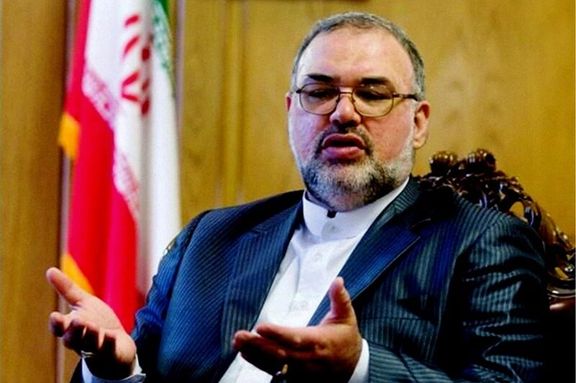
Iran’s former ambassador to Russia says increasing banking cooperation between Tehran and Moscow can be used to circumvent United States’ sanctions.

Iran’s former ambassador to Russia says increasing banking cooperation between Tehran and Moscow can be used to circumvent United States’ sanctions.
Mahmoud-Reza Sajjadi said in an interview with IRNA on Monday that Russia can be a good source to import services and commodities that are difficult to procure from other countries due to Washington’s sanctions regime.
Iran and Russia are reportedly mulling the idea of linking their banking networks and doing their transactions in their local currencies to reduce their dependence on the US dollar.
Sajjadi added that Iran’s relations with Russia is not limited to trade and agriculture, saying that the two countries have a history of successful military cooperation, particularly in Syria.
He described Russia as an important strategic partner and said the proposed 20-year agreement with Moscow has a lot of security and political benefits for Iran.
His remarks came as many Iranians have been expressing resentment over the proposed deal with Russia, saying it is a sell-out, although Iran has not revealed any details about the possible agreement.
Upon an invitation by Russian President Vladimir Putin, President Ebrahim Raisi will pay an official state visit to Russia in a few days, but Iranian officials say signing the 20-year roadmap is not on the agenda of his visit asRussia has so far held back from finalizing the deal.
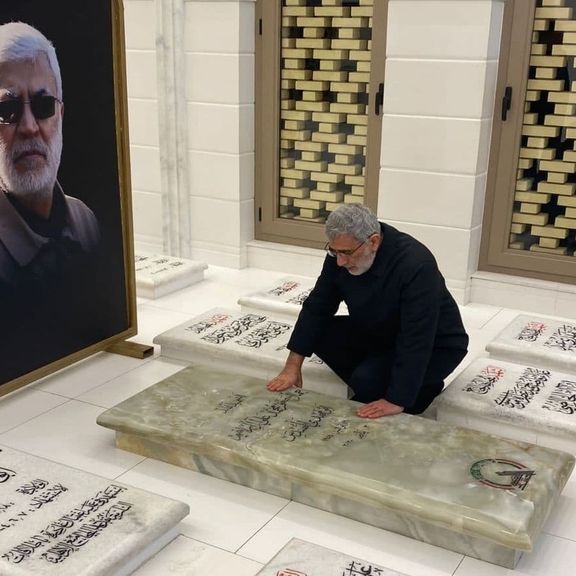
The commander of Iran’s Revolutionary Guards’ Qods force is in Iraq amid tensions between the Sadrist Bloc and other pro-Iran Shiite formations.
Iraqi media published photos and videos of Brigadier General Esmail Ghaani (Qaani) Sunday night as he was visiting the Wadi al-Salaam cemetery in the city of Najaf.
In the footage he was shown paying homage at the shrine of Grand Ayatollah Muhammad Sadiq al-Sadr (father of Muqtada al-Sadr), and Abu Mahdi al-Muhandis, the deputy head of the Popular Mobilization Forces who was killed alongside Ghaani’s predecessor Qasem Soleimani in a US air strike in January 2020.
Ghaani is reportedly set to meet with Iraqi politicians, trying to resolve the differences among Shiite groupings in the next Iraqi government.
Earlier in January, Iraq's parliament finally held its inaugural session that descended into a furious chaos, in which one MP was hospitalized.
One of parliament's first tasks is electing the country's president, who will then name a prime minister tasked with forming a new government.
The movement of Moqtada Sadr – who is against Iran’s presence in Iraq -- won the majority with 73 out of the assembly's 329 seats, but pro-Iran groups claim they can muster the backing of 88 lawmakers to make a bigger coalition.
Iran’s interference in Iraqi affairs led to large protests in 2019 that lasted for months.
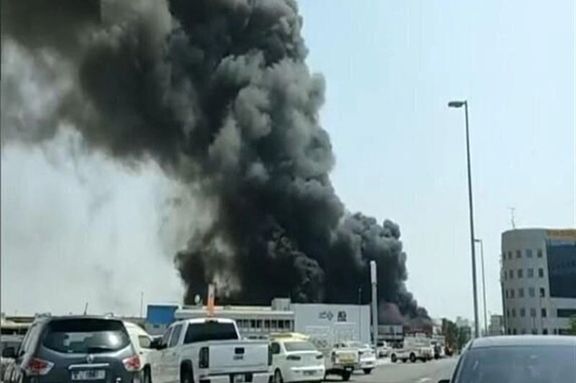
Several explosive-laden drones have hit fuel trucks in Abu Dhabi port in the United Arab Emirates, sparking explosions and fires and killing three and wounding others.
The Saudi-led Coalition said in a statement on Monday that the drones were launched from Sana'a airport in Yemen after Iran-backed Houthi militia claimed responsibility for the assault.
Al Mayadin television close to Iran said that Houthis had fired 20 drones and ten ballistic missiles at the target, but there is no independent confirmation.
According to the Abu Dhabi police, three fuel tanker trucks exploded in the industrial Musaffah area near oil storage facilities firm Abu Dhabi National Oil Company, adding that separate "minor" fire broke out at a construction site of the emirate’s main airport.
"Initial investigations found parts of a small plane that could possibly be a drone at both sites that could have caused the explosion and the fire," the police statement said, adding that there was no "significant damage" from the attack and a full investigation has been launched.
Houthis’ military spokesman said they launched a military operation "deep in the UAE" and would announce details in coming hours.
Iran-backed Houthi group conducts regular cross-border missile and drone attacks against targets in Saudi Arabia but claims of attacks inside the UAE have been rare and mostly denied by Abu Dhabi, which largely scaled down its military presence in Yemen in 2019 amid a stalemate and heightened regional tensions with Iran.
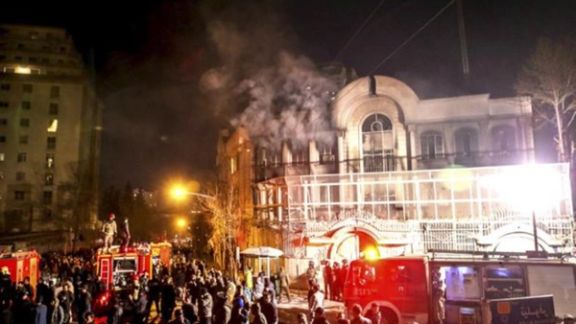
Iran confirmed Monday that three of its diplomats have arrived in Saudi Arabia to represent Tehran in the Organization of Islamic Cooperation.
A report by state media said the diplomats arrived several days ago, marking the first time that Saudi Arabia is receiving diplomats from Iran since 2016, when Riyadh severed relations with Tehran after Iranian hardliners attacked and ransacked its diplomatic missions in Iran.
Iran has taken the development as a positive sign for improving ties and a possible exchange of diplomats. Jeddah is the permanent venue of the 57-member organization.
Iran's Foreign Ministry spokesman Saeed Khatibzadeh said that Iran is focusing for now on reopening its offices in OIC with three diplomats. Iran has long said it's ready to reopen its embassy in Riyadh.
In recent months, neighboring Iraq has hosted talks between the two countries aimed at normalizing ties. Although Tehran in recent days has been claiming that new talks will take place, Riyadh has been silent on the issue, saying previous talks in 2021 remained explaratory.
Saudi Arabia is also concerned about Iran's nuclear and ballistic missiles programs. Iran says the nuclear program has peaceful purposes and its missile program is merely defensive.

Former President Donald Trump says Iran, China, and Russia don’t take the United States seriously anymore under the presidency of Joe Biden.
Trump, who was speaking among his supporters in Florence, Arizona on Saturday, denounced Biden’s foreign policy that has emboldened other countries not to respect the US.
He said during his tenure there was no problem with Russian President Vladimir Putin regarding Ukraine, no problem with China’s President Xi Jinping on Taiwan, adding, “China, Russia, and Iran are engaging in aggression and provocations they never would have dared to just one year ago”.
“They are toying with us”, Trump stated.
Last week, Former Secretary of State Mike Pompeo also slammed the Biden Administration for continuing talks with Iran while Tehran is threatening former US officials and attacking US targets.
He was referring to an animation video published on the official website of Iran’s Supreme Leader Ali Khamenei showing a man targeting Trump playing golf.
Following the publication of the video, Twitter permanently suspended one of Khamenei’s accounts apparently for sharing the animation.
Khamenei and other top civilian and military leaders have threatened revenge for the killing of Qasem Soleimani, the Iranian operator who organized and controlled anti-Western and anti-Israeli militant groups in the Middle East. Trump ordered his killing in early 2020. He was one of Khamenei’s most trusted people.
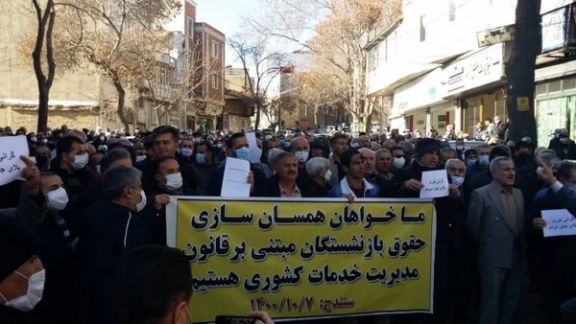
Iran needs $400 billion in investments if it is to save itself and its exhausted, oil-dependent economy in the next few years, an economist in Tehran has said.
In the past 50 years Iran has sold two trillion dollars of oil with little economic growth to show for it, Vahid Shaghaghi Shahri, professor of economics at Iran’s Kharazmi University told Khabar Online websiteon Sunday.
Asked if negotiation to revive Iran’s 2015 nuclear deal succeed in Vienna and United States’ sanctions are lifted will save the economy, Shahri responded that Iran faces plenty of international restrictions and impediments, but what is equally important is the quality of its internal governance.
Shahri also mentioned multiple crises in the history of the Islamic Republic as a factor in preventing a decent rate of economic growth. But in fact, except the first few years of the Iran-Iraq war in the early 1980s, every crisis was a choice made by the leaders of the regime.
Shahri, living in Iran, could not openly make such a comment, but in fact, the decision to create and maintain a state-controlled economy unfriendly to foreign investments, lack of social and political freedoms, unfair advantage to regime insiders, especially the Revolutionary Guard are some of the self-inflicted wounds.
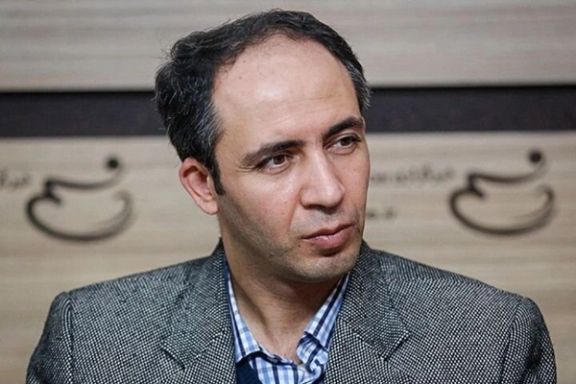
Shahri in the interview referred to two rounds of international and US sanctions in 2010s and said called it a “lost decade”. From 2010 to 2020 the average rate of economic growth was zero, he said and added, “What is important is that after a decade of economic crisis Iran needs to take special action to save the economy from exhaustion and decline.”
The country needs $400 billion in investments in the current decade, Shahri argued, $130 billion only to maintain its fossil fuels production.
The amount needed to revitalize Iran’s oil and natural gas sector mentioned by Shahri is indeed less than what oil minister Javad Owji mentioned in November. He told a budget planning meeting that Iran needed to invest $160 billion in its oil and gas sector or face declining output and eventually imports of fuels.
Shahri also pointed out that for the first time in Iran’s modern history, infrastructure depreciation has surpassed the rate of investments. Insisting that this is a serious crisis, he said that while oil prices are at a recent high of $80 pb, Iran has failed to resolve the nuclear issue and lift sanctions, losing precious time.
Shahri voiced concern that in US Congressional elections in November the Republicans will make gains and will start “to do naughty things” against Iran, so it is better to make a deal on the nuclear issue now. The Islamic Republic also needs to resolve the FATF issue, he urged.
The Financial Action Task Force or FATF, an intergovernmental watchdog, has put Iran on its blacklist for failing to adhere to international conventions against money laundering and financing of terrorism.
Shahri warned that even if Iran resolves it nuclear dispute with the West, “We will face three tough years ahead,” as government coffers are empty and there is a crisis to pay pensions to millions of retired government workers. Moreover, the age of high global dependence on oil is coming to an end and Iran can face a situation of surviving without its main revenue source.